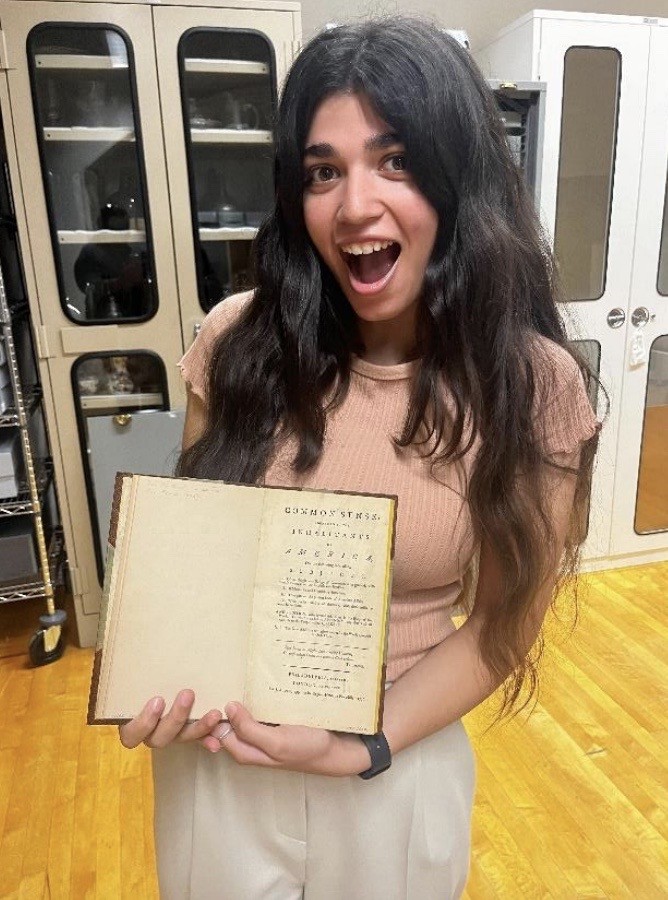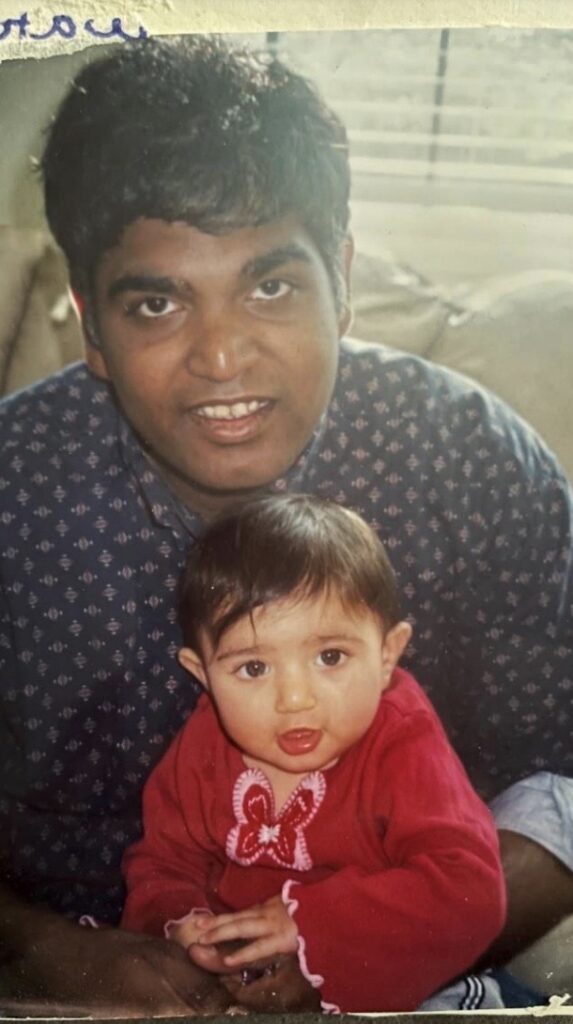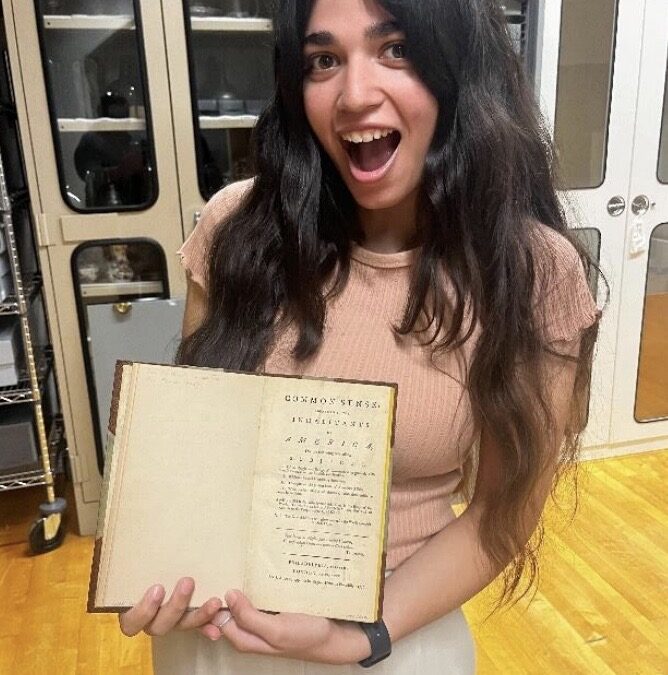Thomas Paine, Enlightenment Philosophy, and Global Histories:
The American Revolution in a Global Context
Written By: Maya Koka
In his famous revolutionary pamphlet, Common Sense, political philosopher and English writer Thomas Paine once said, “A long habit of not thinking a thing wrong, gives it a superficial appearance of being right, and raises at first a formidable outcry in defense of custom.” In 1776, Paine was urging the American colonies to seek independence–not reconciliation–with their mother country, Great Britain. His primary motive: disrupt the traditional structures of hereditary succession and monarchical rule that allowed Great Britain to tax the colonies without representation.

CRDIP Member Maya Koka pictured holding one of the earliest copies of Thomas Paine’s “Common Sense” in Philadelphia, Pennsylvania.
Paine’s fervent desire for Revolution would soon spread across the globe traveling from British North America to France to Saint-Domingue (present-day Haiti), before running its course in Spanish America. With Paine serving as one of its primary spokespeople, the “Age of Atlantic Revolutions” (1775 –1825) marked a period of global history that saw revolutionary violence and chaos from all sides of the world. By challenging hierarchies of privilege in Europe and endorsing a philosophy of inalienable rights, Paine represented an eighteenth-century tradition of Enlightenment philosophers across the Atlantic, who took to writing to express their newfound, revolutionary zeal.

CRDIP Member Maya Koka pictured as a young child with her immigrant father, Vijay Koka.
I, myself, am a Thomas Paine enthusiast. As the daughter of an immigrant father from Hyderabad, India, I see my family’s own story mirrored in that of Paine’s. My father arrived in Boston in1998 with a desire to establish a community, later moving to Texas to start a family. Similarly, Paine arrived in Philadelphia in 1774, three thousand five hundred fifty-five miles away from his hometown of Thetford, England, in search of a new life.
Born and raised in Missouri, City Texas, I first stumbled upon his work after purchasing a copy of historian Joyce Appleby’s edition of Common Sense and Other Writings. Unbeknownst to my fifteen-year-old self, this purchase would spark my interest in philosophy and historical scholarship, later becoming the center of my intellectual pursuits in college. As a rising junior studying philosophy in the International Dual Degree Program between Trinity College Dublin and Columbia University, I have familiarized myself with the Enlightenment tradition while starting a new life in a foreign country. When I found out about the research position entitled, “The American Revolution in a Global Context,” in partnership with ACE and the Independence National Historical Park, I did not hesitate to apply. Before accepting the position offer, I had never been to Pennsylvania or had the opportunity to explore the city of Philadelphia. However, the prospect of living and working in Paine’s self-proclaimed home was enough for me to travel across the Atlantic once again, leaving Dublin for the illustrious city of Philadelphia.
As a historical researcher in the Merchants Exchange building, I have had the opportunity to explore the American Revolution in a manner I never anticipated before. Reading and taking notes on over thirty books, journal entries, and secondary sources, I have expanded my knowledge of the period known as the “Age of Atlantic Revolutions” (1775 – 1825). My favorite part of the project is examining the cosmopolitan stories of those living in the eighteenth century. Having recently finished historian Christine Levecq’s Black Cosmopolitans: Race, Religion, and Republicanism in an Age of Revolution, I have learned a ton about how Black intellectuals used their environments to promote ideologies of inclusion and equality. Reading about the stories of English, Dutch, and French intellectuals has helped me make sense of my own life. It is through studying history that I can further understand my place in this world—as an extension of those who came before me.

The location where Thomas Paine published his “Common Sense,” is less than a block from where CRDIP Member Maya Koka conducts research.
Although my CRDIP role with ACE has been thrilling, it has not come without struggles. Moving to a new city has made me feel isolated at times. However, at the same time, it has pushed me to jump out of my comfort zone and explore activities extremely dear to my cultural background. As of last month, I have started taking Bollywood classes at a local dance studio. With the intention of growing closer to my father’s culture, these classes have allowed me to further understand my multiracial identity. In the future, I plan to apply this understanding to my research as I investigate Revolutions across the globe including in my father’s home country of India.
